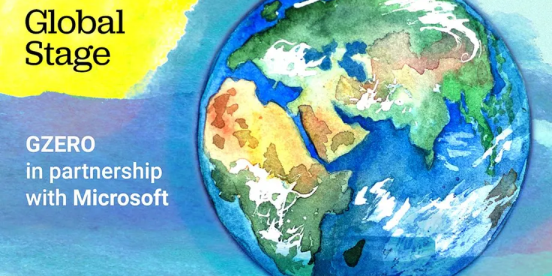We have updated our Privacy Policy and Terms of Use for Eurasia Group and its affiliates, including GZERO Media, to clarify the types of data we collect, how we collect it, how we use data and with whom we share data. By using our website you consent to our Terms and Conditions and Privacy Policy, including the transfer of your personal data to the United States from your country of residence, and our use of cookies described in our Cookie Policy.
What We’re Watching: The future of abortion in America, Madrid hosts NATO summit

Abortion-rights activists protest outside the US Supreme Court after it overturned Roe v Wade.
US states fight over post-Roe abortion rights
In case you've been living under a rock, on Friday the Supreme Court struck down Roe v. Wade, the landmark ruling that protected abortion rights in America for almost 50 years. The decision, as expected, caused an outcry among abortion-rights activists and sparked jubilation for those in the anti-abortion camp. Now, the center of attention shifts to individual US states since 13 Republican-led ones had so-called "trigger laws" to prohibit or severely restrict abortion in case Roe was overturned. Although the verdict is expected to lead to abortion bans in roughly half the states, when and how those laws will go into effect — and potential legal challenges to them — make the timeline hard to predict. Conversely, several states governed by Democrats are taking steps to codify Roe into law, ushering in an uncertain period of legal fights between states to determine whether those who perform and assist abortions can be prosecuted out-of-state, and over access to anti-abortion pills. Politically, the ruling is a double-edged sword for the GOP, which hopes it'll fire up social conservatives, but also fears the Dems could use the verdict to energize their own base and make inroads with suburban women in swing states ahead of the November midterms. Moreover, the ruling has already become a major battleground of the larger culture wars for corporate America.
Check out more of our coverage on the historic SCOTUS reversal:
- GZERO World: Abortion pills likely headed to Supreme Court, says NYT Mag's Emily Bazelon
- Ian Bremmer's Quick Take: Politicized SCOTUS losing legitimacy
- US politics in 60 Seconds: Victory of US conservatives
- The Graphic Truth: Where can American women now get abortions?
